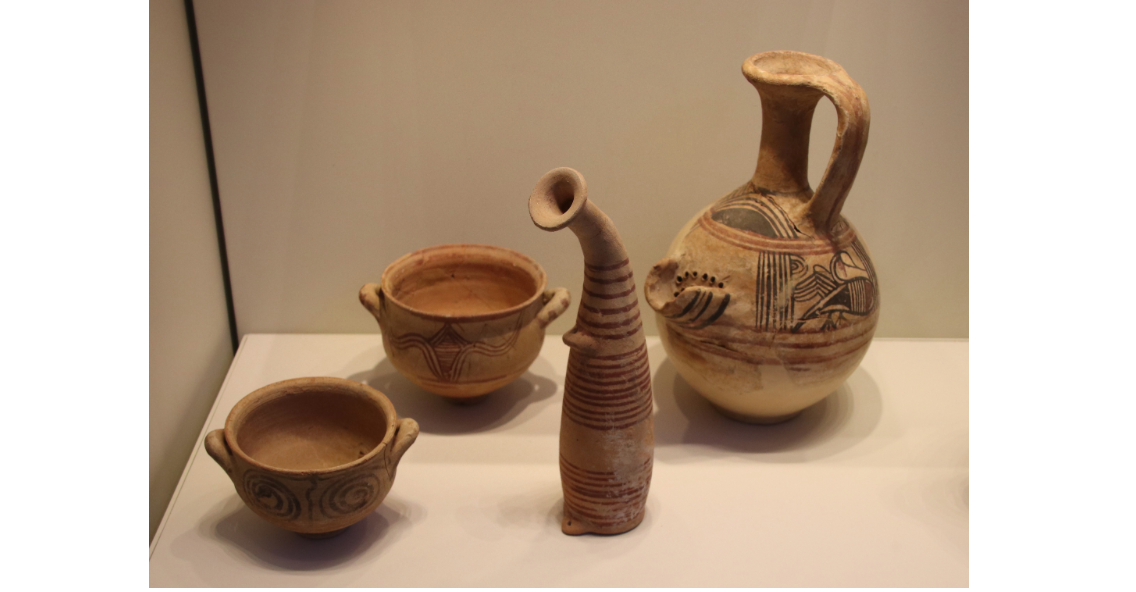914: 2/4 1177 B.C.: The Year Civilization Collapsed (Turning Points in Ancient History Book 2), by Eric H. Cline

Image: Philistine bichrome pottery recently found at Megiddo is thought to have been made by the Sea Peoples who invaded Egypt. Philistine pottery. From left to right: drinking bowl, Azor, 12th-11th century BC; drinking bowl decorated with an octopus, Ekron, 12th century BC; bottle in the shape of a horn, Beth Shemesh, 12th century BC; beer jug, Ashdod, 12th-11th century BC. Israel Museum, Jerusalem, Israel. Complete indexed photo collection at WorldHistoryPics.com This file is made available under the Creative Commons (https://en.wikipedia.org/wiki/en:Creative_Commons) CC0 1.0 Universal Public Domain Dedication (https://creativecommons.org/publicdomain/zero/1.0/deed.en) . The person who associated a work with this deed has dedicated the work to the public domain (https://en.wikipedia.org/wiki/en:public_domain) by waiving all of their rights to the work worldwide under copyright law, including all related and neighboring rights, to the extent allowed by law. 1177 B.C.: The Year Civilization Collapsed (Turning Points in Ancient History Book 2), by Eric H. Cline (https://www.amazon.com/Eric-H-Cline/e/B001HCVOR8/ref=dp_byline_cont_ebooks_1) In 1177 B.C., marauding groups known only as the "Sea Peoples" invaded Egypt. The pharaoh's army and navy managed to defeat them, but the victory so weakened Egypt that it soon slid into decline, as did most of the surrounding civilizations. After centuries of brilliance, the civilized world of the Bronze Age came to an abrupt and cataclysmic end. Kingdoms fell like dominoes over the course of just a few decades. No more Minoans or Mycenaeans. No more Trojans, Hittites, or Babylonians. The thriving economy and cultures of the late second millennium B.C., which had stretched from Greece to Egypt and Mesopotamia, suddenly ceased to exist, along with writing systems, technology, and monumental architecture. But the Sea Peoples alone could not have caused such widespread breakdown. How did it happen? In this major new account of the causes of this "First Dark Ages," Eric Cline tells the gripping story of how the end was brought about by multiple interconnected failures, ranging from invasion and revolt to earthquakes, drought, and the cutting of international trade routes. Bringing to life the vibrant multicultural world of these great civilizations, he draws a sweeping panorama of the empires and globalized peoples of the Late Bronze Age and shows that it was their very interdependence that hastened their dramatic collapse and ushered in a dark age that lasted centuries. A compelling combination of narrative and the latest scholarship, 1177 B.C. sheds new light on the complex ties that gave rise to, and ultimately destroyed, the flourishing civilizations of the Late Bronze Age—and that set the stage for the emergence of classical Greece. https://www.amazon.com/1177-B-C-Civilization-Collapsed-Turning-ebook/dp/B013VPYYGQ